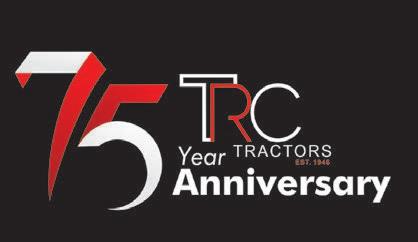






















 by Denise Gunn
by Denise Gunn
The couple owns New Zealand’s original Wiltshire flock, dating back to the early 1980s. Richard and Laura also run a composite flock, which is largely a Wiltshire/Texel cross, and a Hereford herd, on their 250ha property near Marton.


“I’ve been hugely influenced by my father, who impressively topped dairy





production nationwide in the 90s with an all-grass system and cared deeply for our herd,” says Laura. “He never let his work/life balance get out of kilter. I believe strong husbandry at a base level will set you up for all kinds of adversities and equip you with the ability to always be thinking about contingency.”
Growing up on the farm, Sophie was always outdoors among the cows or in the cowshed. As calving fell during her school or university holidays, she was happy to pitch in and lend a hand. Art is one of Sophie’s interests, but
Sculpture Festival that I decided to try my hand at building a sculpture. Anyone can have a go at creating something, and that’s what drove me to try to build my own,” Sophie says. “I really admire what the Kimbolton Sculpture Festival is all about; encouraging people, especially farmers, to allow time to explore their creativity.”

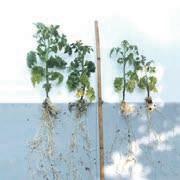 by Denise Gunn
by Denise Gunn
“There is even a photo of me sitting on a calf when I was a kid. They are quiet and good-natured,” said Penelope. “They are a good hill country breed, with a willingness to forage and convert rough feed into weight gain. Their winter coat gets a bit long and shaggy but smooths out a bit over the summer. Occasionally there is a red throwback gene that appears too.”
Penelope’s parents, Margaret and Edwin, also became interested in the breed and gifted Penelope and Andrew six Welsh Black heifers as foundation stock for their small herd as an engagement present in 2006. The couple has continued breeding horned Welsh Blacks. They run a small herd on their Tapawera farm and are active members of the Welsh Black Cattle Breeders Society New Zealand.
by



Three generations of the Sherriff family have farmed their 530ha Rangitīkei property. Ed Sherriff and his wife Kirsty took over after farming in partnership with Ed’s parents, Philson and Judy, for 30 years.



“Dad basically started the farm. His grandfather had a cattle stud but dad took his own cows and started from there,” said Ed.
Straight Angus cattle were chosen for hardiness. Philson was also







involved with a group of breeders at the time Professor Coop developed the Coopworth.


“He got the sheep going too with the first Romney/Border Leicester cross to create the Coopworth. We have been selling rams for 58 years, and he started selling 62 years ago.
“We’ve got a good loyal clientele base with faith in what we are doing. Talking to clients and seeing their success is one of our farming highlights,” Ed said.


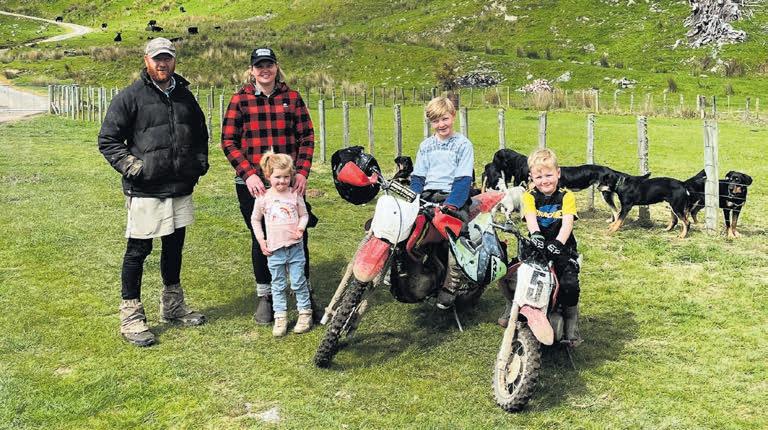
 by Denise Gunn
by Denise Gunn





“My great-grandfather Gary was a legend with his heading dogs. He won 10 New Zealand titles and 14 island titles. Both of dad’s brothers were keen dog triallists and were in run-offs,” Josh said. “I am the third generation to farm my family’s 2,000-acre property, Te Ruae that my grandparents bought in 1970. We run 4,200 Romney ewes and 200 Angus cows, plus replacement.”
On returning to the farm after completing a course at Telford, Josh began to build up his team of dogs. A five-year stint in Taihape followed before moving back to Te Ruae with his partner Emma in 2013. Training dogs and competing in sheep dog trials runs in Josh’s family. His great-grandfather and father both enjoyed the challenge and rewards that come with well-trained dogs, either competing or on the farm.

In 2012, the couple relocated back to Manawatū when they bought Komako. Raised in farming families, Dave and Nicole have years of agricultural experience between them. Dave also attended Smedley Station after leaving secondary school.

“We were extremely lucky to purchase a strong genetic-type, base cow from Hamish and Ginnie,” said Dave. “We started selling bulls privately in 2013 and became a registered stud in 2014, selling bulls
through private treaty until our first on-farm sale in 2020. We sell some Romney lambs store at weaning to Nicole’s brother, who farms in Halcombe and may sell more if it looks like it will get dry.”





“We both were shepherding when we met,” said Nicole. “As we expanded with another lease block, the need for a fulltime shepherd was clear. This then left us with a beautiful sleepout not getting used, other than visitors.”
























 by Denise Gunn
by Denise Gunn
Beekeepers
Since the first pegs were hammered into the ground marking out the area for greenhouse construction in 1989, Riverlea has grown to become a leading supplier of fresh produce to its North Island customers.



Lionel and Margaret Whitehead established the Kairanga-based operation, starting with gourmet lettuces and herbs. Although the couple’s two sons, Brendan and Dion, now manage the family-owned business, Lionel and Margaret are still involved.

Several greenhouses have been built on the five-acre property, growing a range of hydroponic fancy lettuce varieties. “Everything is grown indoors,” said Dion.
The greenhouses use an automated watering system day and night. Computers add nutrients and regulate pH levels. Riverlea has also developed as a wholesale business with a network of suppliers and growers of other products. It ensures a consistent variety of fruit and vegetables available to customers throughout the year.
In 2017 the first two hives arrived on the couple’s lifestyle block near Feilding. Nath placed a windbreak around one of the hives to enable bees to come out and fly over the top. The couple has always held a passion for nature and the outdoors.
“We became very interested in bees and their role in nature. The kids, Archie


and Evie, also became very interested in bees,” said Nath. “It allowed the kids and friends to sit in front of the windbreak and watch bees more closely, see the pollen being collected and the activities around the hive. Everyone loved being able to get up close while lowering the risk of being stung.”

year, we chatted
is raising several


 by
by
Clare first became involved with rare breeds when she bought a few Dexters about 16 years ago. “The breed appealed because it is a small breed, easier on the clay country and easier to manage, are friendly and have lovely personalities,” said Clare.
The addition of Arapawa goats to the menagerie came from a friend in the Pohangina Valley. “She’s been breeding them for a few years, and the idea of

saving a rare breed that is super cute and full of character appealed.”
When Valais Blacknose sheep caught Clare’s eye, she was immediately drawn to the breed, finding them reasonably easycare and friendly.

Clare has also found room on her lifestyle block to graze Farming for Hospice weaner cattle. A scheme that plays a crucial role in raising money for Arohanui Hospice.

Born in Taranaki, Nelson then grew up on Hawke’s Bay farms and lifestyle blocks. He also spent time in Rotorua and northern Queensland. After studying towards a Diploma of Applied Science at the Eastern Institute of Technology, Nelson gained entry to a Bachelor (with Honours) of Chemical and Bioprocess Engineering at Massey University.

“I have always been interested in how things are made, and more



recently in how to turn waste products or by-products into valuable resources. There is a big push to do this for environmental reasons, but I appreciate that at the end of the day, it is just as important for a project to make sense financially.”
As an MIA scholar, Nelson completed four internships. “I love getting in to see all the factories and making connections in different industries.”
We found out how Meat Industry Association scholar Nelson Harper enjoys helping companies reduce their environmental impacts through waste reduction and improved system efficiencies.Meat Industry Association scholar Nelson Harper completed four internships, including one at ANZCO Foods in Waitara Denise Gunn
 by Denise Gunn
by Denise Gunn





Tammie’s long held interest in art developed when she began classes at the Feilding and District Art Society in 2007. “I was introduced to cubism by Rita Easther and it has stuck since, then it’s evolved a lot but it’s still a unique way of painting.”
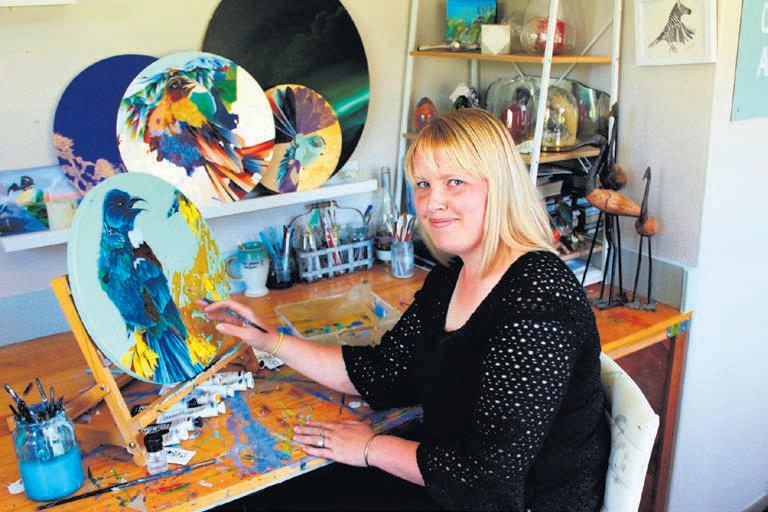

Living with her husband Ralph on his family’s 1,640 sheep and beef farm in the Pakihikura Valley provides Tammie with plenty of scenic and rural views to paint.

“I enjoy painting local landscapes and, in particular, the Rangitīkei River. My painting captures my love of the land and is entwined with storytelling. I also enjoy painting New Zealand fauna and flora, particularly New Zealand birds such as kākāpō, kōkako and huia.”
With two young sons, Tammie balances painting around the boys and helping on the farm.

Born and raised on a Feilding sheep and beef farm, Olivia’s life continues to focus on agriculture. Last year, Olivia was studying towards an AgriCommerce degree at Massey University, majoring in agricultural economics. The scholarship helped fund her final year’s course and living expenses.

“I chose this degree because of my rising concern around supply and demand and government policy in agriculture. It appears to be coming more and more difficult for our farmers

to comply with these regulations, especially whilst battling low prices in the free market,” said Olivia.















“After seeing the effects of this on farmers in my community, I have become very passionate about designing practical solutions to problems seen by consumers and regulators.”
On finishing her degree, Olivia planned to research a range of environmental, social and economic issues for the industry from an economic standpoint.



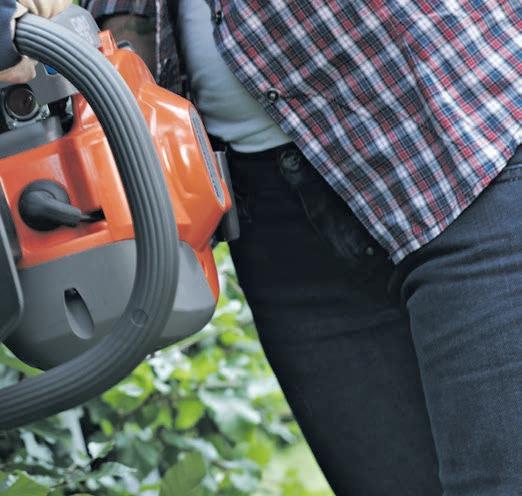












 by Denise Gunn
by Denise Gunn
In September, we chatted to Manawatū couple, Shane Tahu and Margy Marē about their Eclipse Charolais stud.







 by Denise Gunn
by Denise Gunn
We chatted to shearer Alun Jones about his career in the industry.


Welsh-born Alun grew up on a farm in Wales and studied agriculture. He became interested in shearing during a trip to New Zealand. “I enjoyed the skill of the work,” he said.
A four-day shearing course run by Tectra near Palmerston North equipped Alun with the necessary skills to gain a spot in a shearing gang. After shearing in Poverty Bay, Wairoa and the East Cape, Alun returned to the United Kingdom to shear in Scotland and Wales.
Shane, Margy, and their 14-yearold son Benjamin established Eclipse Charolais five years ago on their 46ha Oroua Downs property.
Foundation stock were selected from Silverstream Charolais Stud’s 50-year anniversary female sale. The Canterbury-based stud sells genetics worldwide.
“We purchased, in our opinion, the best that were available at the time and have added further cows since selected for genetics that complement the herd,” said Shane.

Shane said buying their first heifers and registering as a bonafide Charolais stud was a standout for them. “Also, every new crop of calves is always exciting when we have been selective in genetic pairings to see if we made the right choices.”
In 2020, Texel stud sheep were introduced to run alongside the cattle breeding operation. “Our focus is on our Charolais stud cattle. We are both passionate about this breed and the cows we have. Like anything worth doing, it’s an ever-evolving process, and we couldn’t be happier with the results so far.”
In his younger years, Alun was a regular competitor in New Zealand and Welsh shearing competitions. When Alun moved to the Manawatū, he established his own Manawatū Lifestyle Block Shearing business.

In addition to providing a mobile shearing service, Alun offers crutching, foot work and drenching.
“I like to look back at the end of the season, to see what I achieved,” Alun said.


 by Denise Gunn
by Denise Gunn
Last year, the Clifton family told a story of five generations who are currently



(500ha effective) property since purchasing the first block in 1912.















The Clifton family has a long association with Poll Dorsets. Andrew’s grandfather, Eric initially ran Dorset Horns. He and another farmer, RV Pratt, travelled to Tasmania in 1957 to purchase six Poll Dorset ewes and two rams. In 1959, Te Kawa Poll Dorset Stud was registered with the New Zealand Sheepbreeders’ Association as Flock Number Two.
“The Poll Dorset breed has a great future in the sheep industry as a terminal sire or utilised partially in a maternal flock,” Andrew said. “We have sourced proven sires from within the Mega Meat group and other Poll Dorset breeders. It is a great way to keep up linkages with other breeders. He is also on the Poll Dorset Breed Committee.”

At one of the largest saleyards in the southern hemisphere, the auctioneer’s hammer falls on bids for an average of 15,000 sheep and 1,400 head of cattle each week.
Feilding’s first livestock sale was held in May 1880 when 100 head of cattle were sold on the same site the saleyards still occupy.
This event was initially followed by regular fortnightly sales but as demand increased, these sales later became weekly affairs.




In 1907, the same year the Manawatu Auctioneers’ Association was formed, 80,000 sheep were sold through the yards.

Prime livestock is sold on Mondays, and store sales are held every Friday, with additional specialist fairs slotted in from time to time. Up to 30,000 sheep are sold at each of the specialist fairs marked on the calendar each year. Livestock from all over the lower North Island, and occasionally the South Island, is sold through the yards.
In 1998, following a fire that tore through the cattle rostrum, the complex was altered. The cattle rostrum and administration block were rebuilt.
Subsequent makeovers have continued with the reconstruction



of the sheep yards, old loading ramps replaced and additional ones installed, and new drafting and holding facilities built.

The new layout has provided ease of stock movement, improved effluent draining, and the installation of a new water supply has made the concrete base wash-down more efficient.



Tours of the saleyards have been held each Friday on a weekly basis for many years. Tour guides bridge the gap between the urban and rural population. Now with television coverage, overseas film crews, and the internet, recognition has spread around the globe, attracting many international visitors as well as New Zealanders.
Visitors have been known to make some interesting comments during the tours. One visitor asked: “If I call a sheep, will it come to me?” Another asked: “Why can’t we buy just one?”
The saleyards are considered unique due to their close proximity to the town’s central business district, which is just 50 metres away.
Levin’s Walk of Fame, which commemorates people of distinction with a Horowhenua connection, is a plaque for renowned shearer Godfrey Bowen.

Born in Hastings in 1922, Godfrey spent his early years there before his father moved the family to Te Puke. When his brothers, Eion and Ivan, formed a shearing contracting partnership, Godfrey joined them. The brothers developed the Bowen technique, which involved stretching the sheep’s skin out with the shearer’s spare hand to improve the quality of the shorn fleece.
As word spread, Godfrey was sought after at A&P shows around the country. He also caught the attention of a New Zealand Wool Board member and was appointed the board’s chief shearing instructor. In this role, Godfrey trained a team of instructors and established shearing instruction courses at Massey and Lincoln Universities.
Godfrey, his wife, Mavis, and their four children moved to Levin in 1953. That

same year he set a world record, shearing 456 ewes in nine hours at Opiki.
In 1955, Godfrey’s book Wool Away was published, outlining the Bowen technique. Five years later, his services to the New Zealand sheep industry were recognised with an MBE. Godfrey was also awarded two top Soviet honours for his work with shearers in the Soviet Union.
At the inaugural Golden Shears national shearing tournament in 1961, Godfrey helped organise the event as well as compete. He placed second, just behind his brother Ivan. As a shearing consultant, Godfrey visited several countries. He promoted New Zealand wool and also went on many demonstration tours overseas.
The following year, Godfrey and local farmer George Harford established the Agrodome, a farming theme park

Godfrey Bowen received several awards for his services to farming and shearing near Rotorua. At 55, Godfrey placed fourth at the World Championships in England, shearing 15 sheep in 17 minutes. Godfrey’s achievements were recognised in 1990 as one of the first inductees into the New Zealand Sports Hall of Fame.
He was a devoted family man, an active Rotary member and an elder of the Queen Street Gospel Chapel in Levin. Godfrey also played a part in establishing the Forest Lakes Christian Camp near Otaki and El Rancho camp in Waikanae. Bowen passed away in Rotorua in 1994.









































Our in-house processing plant enables us to guarantee the consistent quality and reliability of the process from the picking-up to the putting-down of the animal. As a recognised specialist you can rest assured that our years of expertise and close connection to the farming industry makes our service as convenient, respectful and professional as it can be.





 by Denise Gunn
by Denise Gunn
Brett and Cheryl Percival bought their 13-acre Waikanae lifestyle block in 2014. Originally owned by Richard Nash, son of Sir Walter Nash, the property is tucked under the foothills of the Kapakapanui Ranges. A variety of fruit trees grow in three orchard areas.


“The original heritage orchard, which includes one of every type of tree, was established early last century on the property’s lower silt terrace,” Brett said.


“The small, dark, round purple plums were a mystery. A Google search confirmed they were an English Damson plum that, when steeped in alcohol, made a delicious liqueur,” Cheryl said. “A homestill kit was purchased, and the production of home-brewed alcohol was underway. A lot of experimentation ensued over the next couple of years, using all sorts of fruits in quantities ranging from five-litre to 50-litre containers.”
 by Denise Gunn
by Denise Gunn
We chatted to the Bates family who shared their love of the land, animals and the dairy industry.
Working as a team, each family member brings a unique set of skills to their dairy farming business, Jonbay Farms Limited. Following succession planning in 2018, the three siblings, Tristan, Callum and Megan, each bought shares in the family’s newly-created Jonbay Company. The trio also took on roles in the business.




Their parents, John and Philippa, have always been dairy farmers and own a small farm at Tokomaru. Tristan runs the home farm. Four years ago, the family began leasing a second farm belonging to Kevin and Gail Russell. A total herd of 350 Jerseys, crossbreds and a few Ayrshires are milked over the two small farms.
In this past season, herd production between the two farms reached 110,000kgMS. Callum and Megan were first-time entrants in the 2022 Manawatū Share Farmer of the Year, winning all nine merit awards and placing runners-up in the competition.




 by Denise Gunn
by Denise Gunn

Since its early beginnings as an agricultural college, Massey University has continued to expand, offering world-class education and research facilities.
The proposal for establishing an agricultural college in the North Island began in 1879 with former Governor of New Zealand Sir George Grey, the Farmers’ Union and Inspector-General of Education George Hogben throwing their full support behind it.
With much ongoing discussion for an agricultural training institution, Sir Geoffrey Peren joined forces with Professor William Riddet of Auckland University College. The two professors travelled to assess potential sites, settling on land near Palmerston North.
Palmerston North ratepayers were keen to see an agricultural college established in the area. An agreement was made for the Palmerston North City Council to purchase the McHardy property Tiritea, at Fitzherbert, which was gifted to the college. In 1926, as a condition in the purchase agreement, the Government bought the neighbouring Batchelar Estate for the college.
Sir Geoffrey was appointed principal of the agricultural college in 1927, and Professor Riddet became the chair of agriculture, and the director of the Dairy Research Institute. Degree and diploma courses in general agriculture and dairy farming were structured by Professor Riddet.


As preparations began for the following year’s intake of students, Batchelar House underwent renovations to meet administration needs and teaching purposes. Makeshift laboratories and lecture rooms were also equipped.

Massey Agricultural College, named after former prime minister William Ferguson Massey, was officially opened by the Minister of Agriculture, Oswald James Hawken, on March 20 1928. Eight students lined up to enrol on the first day of opening. In the college’s first year, 85 students enrolled. By the next year, student numbers had doubled.
Although courses were open to women, it was four years later before the first female students enrolled. Massey was the only agricultural college in the country to permit female students to study.



 by Amy Fifita
by Amy Fifita
Arthur says.
“I talk about my journey as a lifestyle farmer with a Bluetooth headset, a selfie stick and a cell phone. People are always fascinated by personal journeys, and I tell them how I integrated into it
Within a year, Arthur had become a popular online farm host. In 2021 his business was spotlighted as a finalist for the New Zealand International Business Awards (NZIBA) and New Zealand Tourism Awards.



 by Denise Gunn
by Denise Gunn
Caroline’s flower farm is located at Awahuri. “I own a 5.5ha lifestyle block with my husband, with the flower growing taking up 800 square metres,” she said.

A wide variety of flowers are grown at Caroline’s In My Garden Ltd. “During the summer months or wedding season, I am able to grow flowers that do not traditionally have a long vase life but have trending colours and interesting
textures. Flowers that add the wow to a bridal bouquet. They add dance if you like.”
Her tunnel house is put to good use during the winter, growing essentials for the florist trade. “My flowers are grown indoors and outdoors. Having a tunnel house makes for a better night’s sleep when the wind is howling and the rain is pouring, knowing that your precious blooms are not being smashed to bits.”
 by Denise Gunn
by Denise Gunn

The paddle steamer, originally named Aotea, was shipped to Whanganui in kitset form. Following assembly, she was operated by the Whanganui Settlers River Steamship Company.
In 1902, she was purchased by Alexander Hatrick to join his fleet of riverboats operating under the name Hatrick and Company. The paddle steamer was also renamed Waimarie, which means good fortune. Riverboats journeyed up and down the Whanganui River, providing a link between Whanganui and Taumarunui, carrying mail, cargo and ferrying passengers.
Cruising up the river on a paddle steamer, considered one of the world’s



greatest river journeys, became a popular activity among tourists. Waimarie was affectionately nicknamed the ‘queen of the river’ during her decades of service.



In 1952, an accident left Waimarie listing. Before a rescue operation could take place, the flooded river filled her hull with silt, and the paddle steamer sank. Although Waimarie remained under water for decades, she was never forgotten.
Forty years after Waimarie sank, a group of enthusiasts developed a plan to salvage, restore and once again operate her along the Whanganui River. Although many people thought the project was too difficult, the group was not to be deterred. Funds and sponsorship were sought, and

River then together with materials, professional expertise and volunteers, the mission could begin.
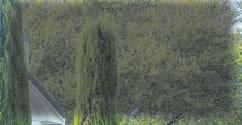




Waimarie paddle steamer cruises along the











final karakia on New Year’s Eve 1999 and set to return to her place as queen of the river.
In January 1993, a tapu-lifting ceremony was held, and the paddle steamer’s restoration became Whanganui’s official Millennium Project. When Waimarie was removed from the depths of the Whanganui River, other items were also salvaged. Among these were a starboard navigation light, lamp and whistle.
The paddle steamer’s restoration took seven years, with 67,000 volunteer hours dedicated to the project. Once restored to her former glory, Waimarie was blessed with a
At midnight, a millennium voyage set off with invited guests onboard. Crowds of supporters cheered and waved from the riverbanks. Waimarie carried more than 25,000 passengers in her first year back on the Whanganui River.

She continues to operate with twohour cruises leaving the Riverboat Centre Wharf in Whanganui, heading upriver before returning to the wharf. A commentary points out places of interest and explains the riverboat history during the trip. Special event cruises are also held throughout the year.

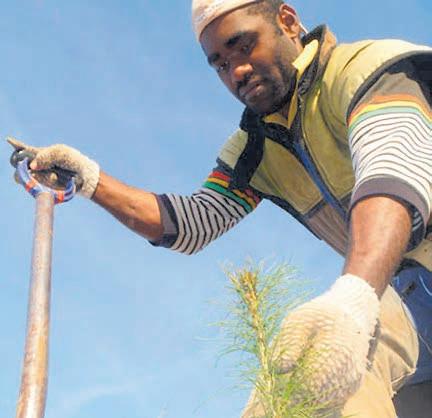


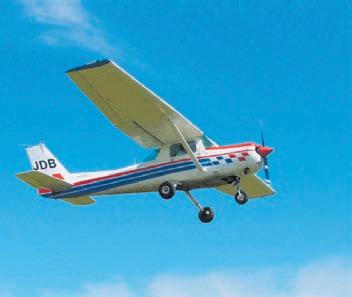 by Denise Gunn
by Denise Gunn

The couple has not only turned their property into a working farm; they’ve created a place to train horses, hold horse camps, treks and clinics, provide riding lessons and a range of other services. “We are also all about people,” said Mel.


“Our aim for the property is for it to be a place where people can come and enjoy the wide open spaces, experience being on a farm, develop themselves, be accepted and grow in confidence, and refine leadership skills. We want people to create lifelong memories via an encounter with horses, the farming way of life and fun in the outdoors.
“We meet so many amazing and interesting people who come here. Being able to live the dream is a highlight every day.”
Eric Weir (QSM) of Waverley came up with the initial cattle-raising fundraising concept to support the hospice. The scheme was established in 2005, just three years after the hospice building was opened by Dame Catherine Tizard. Six trustees manage the project.
Farming Friends Trust chairman Brian Doughty became involved in the scheme around 2006. The former Brunswick dairy farmer also had a


lengthy involvement with Federated Farmers before retirement. Cattle are purchased through stock agents and then distributed to willing participants for grazing.
Farmers and lifestyle block owners can take on cattle to graze, donate cattle for sale or make a monetary donation to Farming Friends of Hospice Whanganui. Some farmers prefer to supply the scheme with their own cattle.






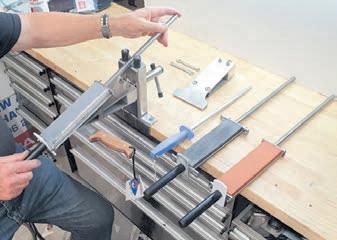

 by Denise Gunn
by Denise Gunn
In June, Shannon School showed us how staff and pupils are fully committed to the Enviroschools programme.
In March, Manawatū couple, Steve Clarkson and Lyn Watson, talked about their lifelong interest in wool.
Shannon School pupils attend a garden

The Horowhenua school has followed a path of environmental and sustainable practices for many years, extending this into the community. Teacher and Enviroschool leader Adam McCallum’s passion for the environment and sustainability has placed him in an ideal position to guide the students.

Vegetable, herb and fruit gardens have been established on the school grounds. Two Vegepods were purchased through a Horizons Regional Council grant. The school follows three different methods to deal with food waste. Four worm farms take care of the majority.

“Non-worm farm food waste is directed into the school garden compost or our bokashi composting system,” said Adam.
The community has also been involved with the school, taking part in various tree planting days around the district
Steve was raised on a Hawke’s Bay sheep farm and went on to university, graduating with a Master’s in Sheep Farm Management and Agricultural Economics. Work as a farm management consultant overseas and in Northland followed.
After graduating as a mature student with a Bachelor of Science, Lyn worked as a research technician. Her interest in wool began when she was given a spinning wheel
for her 21st birthday. The couple runs a flock of around 40 black and coloured breeding ewes, plus replacement hoggets and lambs on their Aokautere property.
In 2015, Steve and Lyn bought Waione Wool Saddleblankets. Two years later, following the purchase of equipment from a business previously based out of Foxton, the couple also created Waione Wool Carding. “Wool is such a great fibre,” said Lyn.






We have heard countless stories of miserable summer holidays where beaches have been closed due to high swells. The winter woollies have come out to keep people warm as they brave the weather outside and insist on still cooking on the barbecue.

One thing that hasn’t stopped in the past month is the grass growing. Traditionally, in Manawatu, the grass would have slowed now and started to burn off with the long hours of sunshine and heat. Still, as I write this article we are headed for a low overnight of just nine degrees and a high of 20 — not very tropical for this time of year.
If one of your New Year’s resolutions is to spend more time working on your lawns and gardens, we have all the tools to help make it a reality. From mowers to dedicated edgers to ax knives and pruners. For the people that decide to roll up their sleeves and go all in, we have chainsaws that can level the garden so you can start fresh.
If you need blackberry cleared, Megan can offer free goats — just call in to see her at the shop. Still, she will want to know that they are going to a good home and not renamed Rogan.
Rob and Neil are busy in the workshop doing servicing and repairs on ride-on mowers that are coming in thick and fast with broken belts. Their advice is to mow sensibly and remember that some machines still have quite a few limitations; they are mowers — not tractors. Try to keep on top of the growth and mow often. An annual
Goats CAN climb trees,

Halcombe Sheep, Beef (and 11 goats) Farm service will help, and Rob advises





For great service and industry knowledge, please visit Rob, Megan and the team at Central Mowers, a ercely independent dealership and your home of






servicing the Manawatu region for 12 years. Located at 696 Tremaine Avenue, Palmerston North. Phone 06 355 2967. Visit centralmowers.co.nz or nd us on Facebook.




